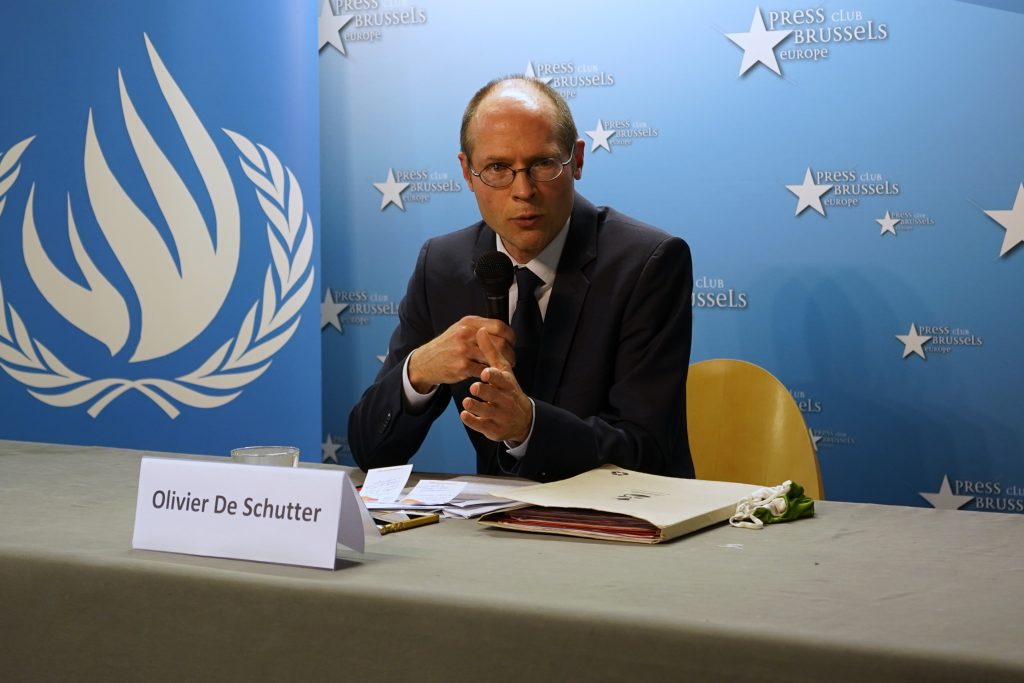STATEMENT
by Professor Olivier De Schutter,
United Nations Special Rapporteur on extreme poverty and human rights, on his visit to the European Union
29 January 2021
The European Union must boldly rethink its socio-economic governance if it is to live up to its commitment to eradicate poverty, said the UN Special Rapporteur on extreme poverty and human rights, at the end of an official visit to the EU’s institutions (25 November to 29 January 2021).
“The EU can play an important role in galvanizing Member States’ anti-poverty efforts, notably through the yearly recommendations it issues to its Member States. But instead of prioritizing investments in healthcare, education, and social protection, these recommendations have often imposed budgetary cuts in the name of cost-efficiency. Since 2009, Member States have only decreased their investments in these areas critical for poverty reduction,” the UN expert noted.
During its press conference, Professor Olivier De Schutter, highlited the role of local authorities in the addressing poverty and social inclusion in the following terms:
“ I had two excellent meetings with two important networks Eurocities on the one hand, and Human Rights Cities Network on the other hand; both of which were extremely instructive.
Firstly, I am struck by the fact that local entities and municipalities, were not involved in the shaping of national recovery and resilience plans that countries are now preparing under the recovery and resilience facility of the EU. This is a missed opportunity because municipalities play a hugely important role in providing support to families in areas such as health care, education, access to employment and housing. It is estimated that 60% of the financial support that goes to families in poverty actually is in the hands of municipalities. Municipalities are key actors in the fight against poverty at the local level and they should be consulted much more by States in the preparation of their national recovery plans.
Secondly, I am struck by the fact that municipalities have been experimenting with new schemes but are not sufficiently encouraged to experiment with the right to fail when experimenting. This, despite the huge benefits we would have from allowing these experiments to develop into new social innovations that can be replicated elsewhere. One example is the adoption in France of a law on “zero long-term unemployment territories” experiment. This was initially implemented in a dozen of municipalities in France and it is now being expanded to some 60 municipalities. It is an experiment by which the local entities invest in creating jobs for people who are long-term unemployed. It is indeed more costly to have someone who is unemployed with all the possible related costs (depression, health problems, violence) in addition to unemployment benefits to be paid, than to create employment for these people.
Provide better services to the population or invest more work in the ecological transition as a social leverage is a very promising experiment led in France. Many parties across Europe could benefit from learning out of it. This experiment in France could be expanded to create territories with no non-take up of rights areas in the country, where the municipality would commit to all beneficiaries of social aid to receive the benefits they have the right to, without anyone left behind. This experiment requires a proactive approach towards the beneficiaries, to inform them about their rights and to help them to overcome the hurdles they experience in trying to exercise those rights.
Municipalities are a key actor because they can experiment, and they can launch social innovations. I believe municipalities are hugely important part of the toolbox we have to combat poverty and should be recognized as such”.



